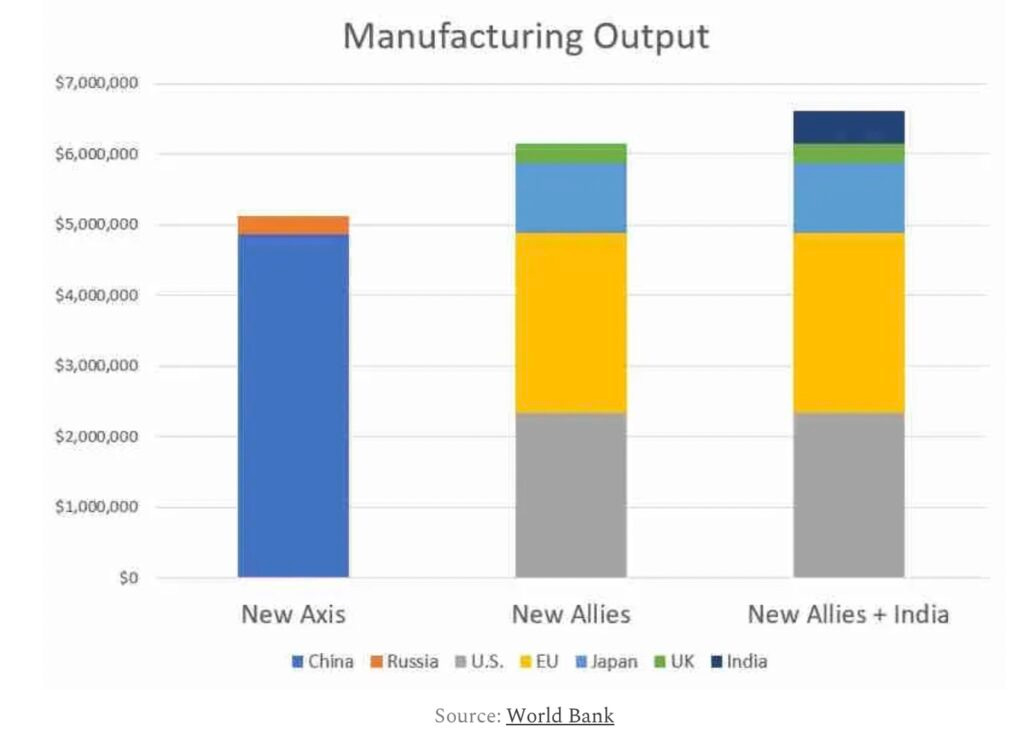Wednesday 21 February, 2024
After Vermeer
Quote of the Day
”Everything will be all right, and, even if it isn’t, we’ll have the consolation of having lived honest lives.”
Alexei Navalny
(h/t John Seeley)
Musical alternative to the morning’s radio news
Chris McMullan | The Lark in the Morning (Jig)
Such a lovely tune. Also a good illustration of why Uileann pipes are difficult to play well. There’s a nice adaptation of the tune for the Bouzouki by Tijn Berends here (plus another tune, The High Drive).
Long Read of the Day
The Political Economy of AI
If ever I get round to compiling a collection of seminal essays on AI, Henry Farrell will have a prominent place in the list of authors. If you want to see why, then set aside some time for this essay, in which he takes Alison Gopnik’s insightful idea that LLMs (Large Language Models like CPT-4 et al) are not AIs (as the tech industry maintains) but cultural technologies like books and libraries and explores the implications of that idea.
It’s long but IMO well worth it.
Here’s how Henry sums it up at the end:
LLMs are cultural technologies of summarization, whose value depends on people continuing to actually produce culture that can usefully be summarized. Absent intervention, LLMs will likely develop, as other technologies such as Internet search have, in ways that benefit their makers at the expense of others. The summarizations that they produce risk supplanting the culture that they feed on.
This would be a terrible outcome. Borges wrote a famous, very short story about what happens when the map comes fully to displace the territory.
In that Empire, the Art of Cartography attained such Perfection that the map of a single Province occupied the entirety of a City, and the map of the Empire, the entirety of a Province. In time, those Unconscionable Maps no longer satisfied, and the Cartographers Guilds struck a Map of the Empire whose size was that of the Empire, and which coincided point for point with it. The following Generations, who were not so fond of the Study of Cartography as their Forebears had been, saw that that vast Map was Useless, and not without some Pitilessness was it, that they delivered it up to the Inclemencies of Sun and Winters. In the Deserts of the West, still today, there are Tattered Ruins of that Map, inhabited by Animals and Beggars; in all the Land there is no other Relic of the Disciplines of Geography.
The maps that are eating our world might end up being useless for completely different reasons. But the resulting Deserts of the West would not be any more hospitable to intellectual life.
And that’s without taking into account the question highlighted by Ross Anderson: will LLMs choke on their own exhaust?
Why Cold War 2.0 will be different from its predecessor
From Noah Smith…
The U.S. overwhelmed its opponents in World War 2 by outproducing them. In the Cold War, the U.S. and its developed democratic allies were able to outmatch the USSR in an arms race, and to gain an edge in precision weaponry through their mastery of the semiconductor industry. But in Cold War 2, the economic dominance that propelled liberal nations to victory in the 20th century no longer exists. China’s transformation into the world’s factory equalized the balance of economic might between autocratic and democratic countries:
This, fundamentally, is the reason the New Axis is a dire threat to the liberal world order. If China weren’t such a manufacturing powerhouse, Russia’s combination of aggression, oil revenue, nuclear bluster, and information operations would certainly be annoying, but wouldn’t represent a real challenge to the alliances that defeated it in the first Cold War. It’s only because of the looming specter of Chinese manufacturing might that Russia and Iran are more than just rogue states. As things stand, China threatens to be able to overwhelm the U.S. in a war, in much the same way that the U.S. overran the Axis powers in WW2.
Sobering, ne c’est pas?
Linkblog
Something I noticed, while drinking from the Internet firehose.
The Winterkeeper Link
Steven Fuller is a winter caretaker who has lived at Yellowstone national park for the past 50 years. As the cold weather approaches and the seasonal transformation begins, he hunkers down in his remote mountain cabin. Lovely video.
Errata
This blog is generally put together at the end of a long and busy day. So every Monday, Wednesday and Friday morning I wake up with a sinking feeling that somewhere in that day’s edition there will be misspelt words, missing apostrophes and other proofreading atrocities. And indeed there often are. For which I crave your indulgence. Like most authors, I am my own worst editor.





